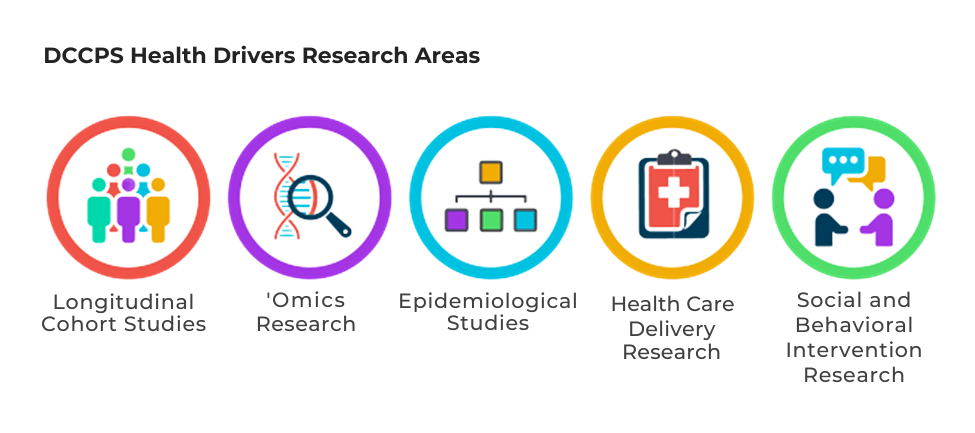The National Cancer Institute is committed to reducing the burden of cancer risk, incidence, and mortality and improving health for all. Health Drivers (HD) are differences in cancer risk, incidence and mortality disproportionately affects populations who have experienced greater obstacles to health based on factors such as age, socioeconomic status, education, disability, and/or geographic location.
Differences in cancer rates are seen in measures such as the incidence, prevalence, morbidity, mortality, survivorship and quality of life after cancer treatment, and burden of cancer or related health conditions, screening rates, and stage at diagnosis.
DCCPS’ mission is to monitor the differential burden of cancer among Americans and promote and conduct research that identifies and addresses the challenges contributing to these differences across the cancer control continuum and throughout the human lifespan. The goal is to eliminate these health drivers that negatively impact health and impede the goal to achieve optimal health for all people.

Mission
- Promote and conduct research that identifies and addresses the structural, social, economic, cultural, psychological, behavioral, and biological mechanisms contributing to worse health outcomes across the cancer control continuum.
- Understand the drivers in cancer, and develop and implement effective interventions that address them in an effort to achieve optimal health for all.
Goals
- Eliminate differences in health outcomes through effective interventions.
- Improve health for all people by eliminating avoidable harmful drivers in health.

